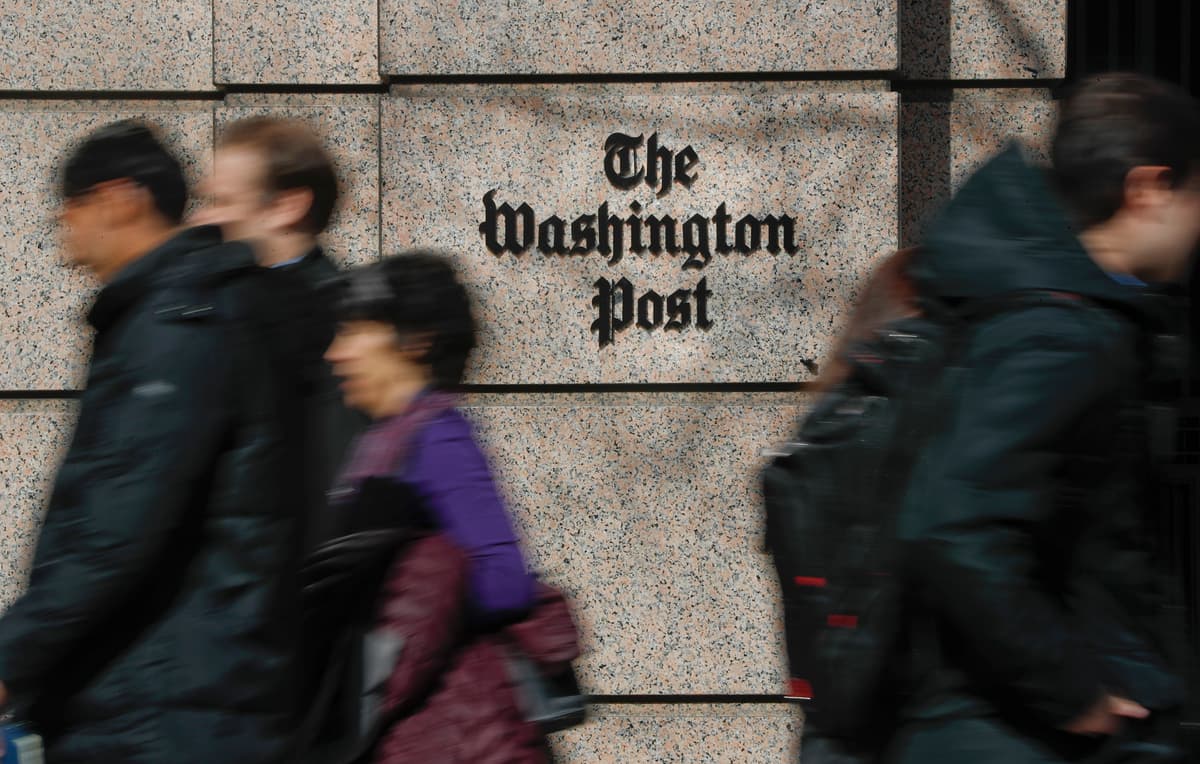Uproar at the Washington Post
We wish the paper luck as it tries to find its footing while democracy plunges ahead.

Democracy may die in darkness, but newspapers tend to die in broad daylight. Whether or not things will get that far at the Washington Post, it’s astounding to see it work itself into a lather over its decision to hire from Fleet Street an editor and a publisher who allegedly published facts based on stolen records. The uproar reached such a state that the editor, Robert Winnett, decided to stay put at London. The fate of publisher Will Lewis looks uncertain.
This is the latest chapter in a series of editorials we call “Secrets of the Press.” The last time we used that sobriquet was in August 2022 when the press was in a swivet over President Trump’s alleged mishandling of classified documents. Trump’s critics included the same liberal papers, the Times and the Washington Post, that were prepared to risk jail to publish the Pentagon Papers in defiance of a government demand to return the purloined papyruses.
The source of those papers, after all, was a rogue analyst at Rand, Daniel Ellsberg, who surreptitiously copied thousands of pages of a classified study of America’s involvement in Vietnam. Ellsberg then passed his findings to the press, which immediately seized the scoop. The Times and the Post were both enjoined by federal judges from continuing to publish Ellsberg’s information, but the rivals teamed up to take the dispute to the Supreme Court.
There the papers won their bet. Writing for the high court, Justice Hugo Black observed that the papers, “far from deserving condemnation for their courageous reporting,” were to “be commended.” A Pulitzer jury lauded the Times for publishing the Pentagon Papers, touting it as proof to “the American people” that “the press continues its devotion to their right to know, a basic bulwark in our democratic society.”
Some 40 years later, the Post teamed up with an ex-contractor of the National Security Agency, Edward Snowden, who is accused of stealing a trove of classified information. The Post, along with the Guardian, was all too glad to publish Mr. Snowden’s findings despite their provenance. “Disclosing the massive expansion of the NSA’s surveillance network absolutely was a public service,” the Post’s editor, Martin Baron, said at the time.
Are the critics of Mssrs. Lewis and Winnett trying to draw a distinction between disclosing government secrets and stealing the private information of individuals — including politicians? In the case of the Parliamentary expenses scandal, which exposed the misuse of public funds, that looks to us like a distinction without much of a difference. In any event, at the rate things are going, such distinctions are becoming ever thinner gossamer.
It’s hard to avoid asking, moreover, whether the Post’s revolt against Mr. Winnett was over his aggressive journalism or his politics. He comes from the Telegraph, which the Times calls “a center-right paper associated with Britain’s Conservative Party.” Then again, too, the Times is a left-of-center paper associated with America’s Democratic Party. Could the Post’s leftist politics, rather than journalistic ethics, more accurately explain the unrest there?
Amid the Post’s turmoil, its owner, Jeff Bezos, has said he stands by Mr. Lewis. Mr. Bezos calls corporate cultures “hard to change.” He runs Amazon as if it’s always “day one.” Says he: “Day 2 is stasis. Followed by irrelevance. Followed by excruciating, painful decline. Followed by death.” The Financial Times’s John Gapper reckons Mr. Bezos must be “watching the Post’s tumult and asking whether, despite all the Pulitzers, that is its fate.”
The rebellion at the Post, with its veneer of concern over ethics, suggests amnesia in respect of the paper’s own history. It’s a far cry from the mood after the Pentagon Papers, which editor Ben Bradlee said forged “a sense of confidence within the Post.” The Post’s David Maraniss reckons, referring to Messrs. Lewis and Winnett, “the body is rejecting the transfusion.” Let’s hope the Post recovers in time to pitch in on the story that democracy is going full tilt.

